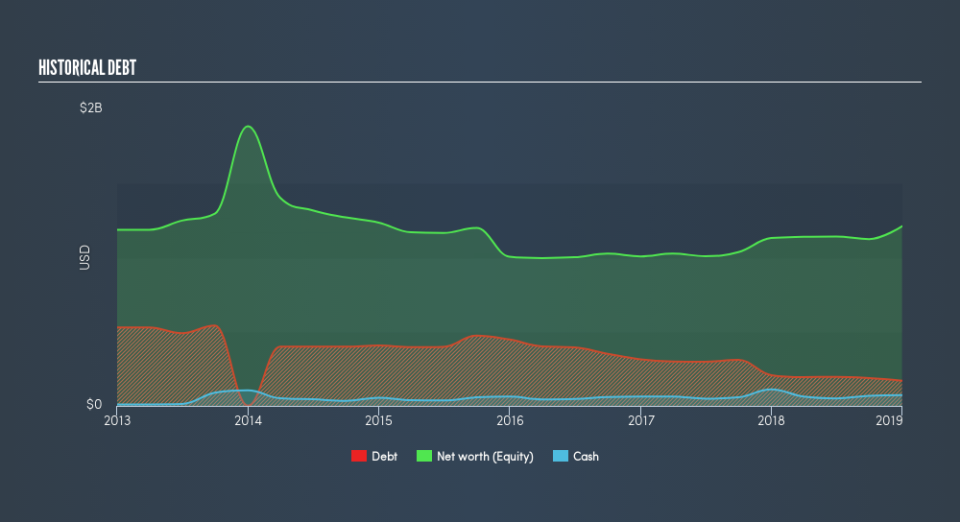Knowles Corporation (NYSE:KN): Time For A Financial Health Check

Knowles Corporation (NYSE:KN) is a small-cap stock with a market capitalization of US$1.5b. While investors primarily focus on the growth potential and competitive landscape of the small-cap companies, they end up ignoring a key aspect, which could be the biggest threat to its existence: its financial health. Why is it important? Companies operating in the Electronic industry, even ones that are profitable, are inclined towards being higher risk. So, understanding the company’s financial health becomes vital. I believe these basic checks tell most of the story you need to know. Though, since I only look at basic financial figures, I recommend you dig deeper yourself into KN here.
Does KN produce enough cash relative to debt?
KN’s debt levels have fallen from US$207m to US$171m over the last 12 months – this includes long-term debt. With this reduction in debt, KN’s cash and short-term investments stands at US$74m , ready to deploy into the business. On top of this, KN has generated US$99m in operating cash flow over the same time period, leading to an operating cash to total debt ratio of 58%, indicating that KN’s operating cash is sufficient to cover its debt. This ratio can also be interpreted as a measure of efficiency as an alternative to return on assets. In KN’s case, it is able to generate 0.58x cash from its debt capital.
Can KN meet its short-term obligations with the cash in hand?
With current liabilities at US$142m, it appears that the company has maintained a safe level of current assets to meet its obligations, with the current ratio last standing at 2.57x. For Electronic companies, this ratio is within a sensible range since there is a bit of a cash buffer without leaving too much capital in a low-return environment.
Is KN’s debt level acceptable?
KN’s level of debt is appropriate relative to its total equity, at 14%. KN is not taking on too much debt commitment, which may be constraining for future growth. We can check to see whether KN is able to meet its debt obligations by looking at the net interest coverage ratio. A company generating earnings before interest and tax (EBIT) at least three times its net interest payments is considered financially sound. In KN’s, case, the ratio of 5.13x suggests that interest is appropriately covered, which means that lenders may be less hesitant to lend out more funding as KN’s high interest coverage is seen as responsible and safe practice.
Next Steps:
KN has demonstrated its ability to generate sufficient levels of cash flow, while its debt hovers at a safe level. In addition to this, the company will be able to pay all of its upcoming liabilities from its current short-term assets. This is only a rough assessment of financial health, and I’m sure KN has company-specific issues impacting its capital structure decisions. You should continue to research Knowles to get a better picture of the stock by looking at:
Future Outlook: What are well-informed industry analysts predicting for KN’s future growth? Take a look at our free research report of analyst consensus for KN’s outlook.
Valuation: What is KN worth today? Is the stock undervalued, even when its growth outlook is factored into its intrinsic value? The intrinsic value infographic in our free research report helps visualize whether KN is currently mispriced by the market.
Other High-Performing Stocks: Are there other stocks that provide better prospects with proven track records? Explore our free list of these great stocks here.
We aim to bring you long-term focused research analysis driven by fundamental data. Note that our analysis may not factor in the latest price-sensitive company announcements or qualitative material.
If you spot an error that warrants correction, please contact the editor at editorial-team@simplywallst.com. This article by Simply Wall St is general in nature. It does not constitute a recommendation to buy or sell any stock, and does not take account of your objectives, or your financial situation. Simply Wall St has no position in the stocks mentioned. Thank you for reading.

